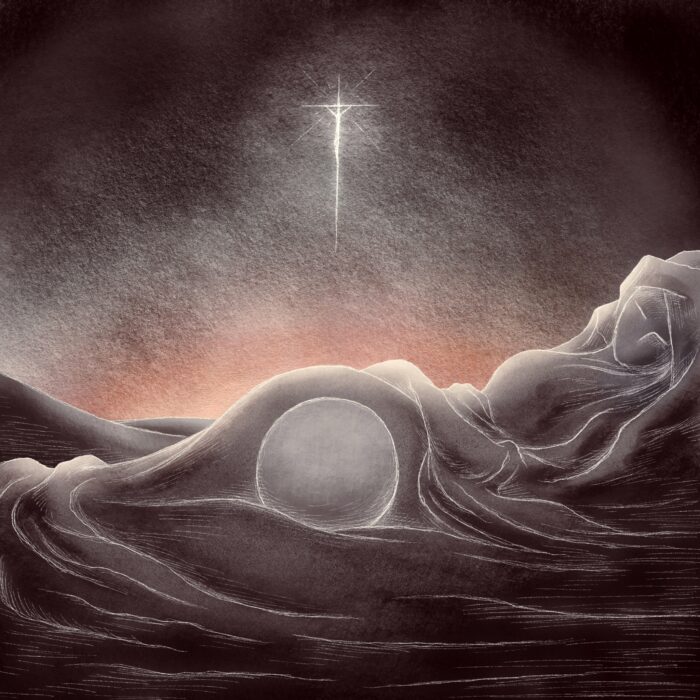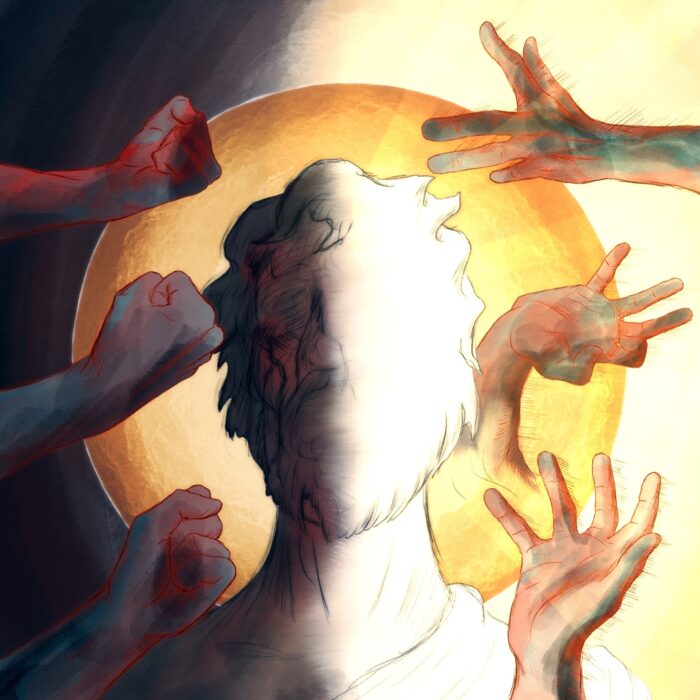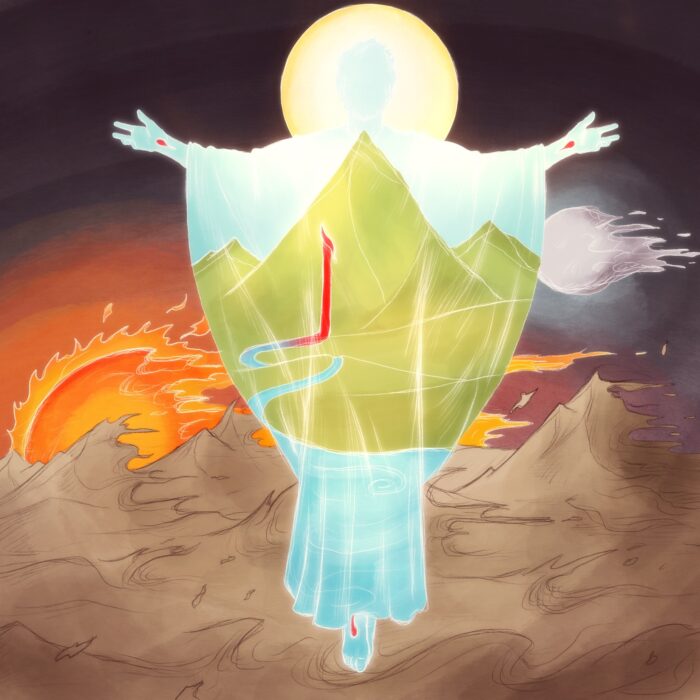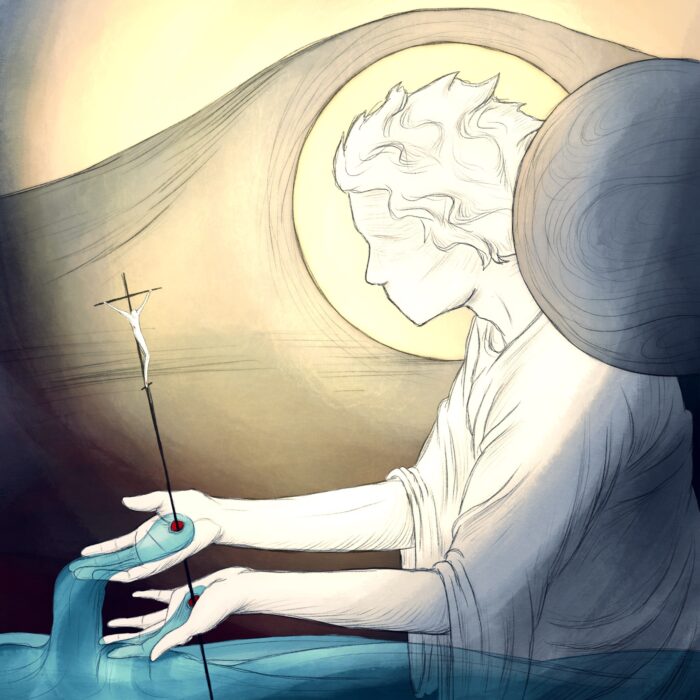
Isaiah 26:19, “You who dwell in the dust, awake and sing for joy! For your dew is a dew of light, and the earth will give birth to the dead.”
Isaiah 26:18-19, “…we were pregnant, we writhed, but we have given birth to wind. We have accomplished no deliverance in the earth…Your dead shall live; their bodies shall rise. You who dwell in the dust, awake and sing for joy! For your dew is a dew of light, and the earth will give birth to the dead.”
What caught my attention here was the repeated birth motif.
First Israel presents their sufferings as a woman in her birth pangs. Yet those pangs lead to nothing, Israel seems to give birth to the “wind”—no lasting deliverance is achieved, the enemies of God’s people are not defeated….It seems that the historic agonies of the people of God have been for naught; the great promises given to Abraham, Isaac, and Jacob—the promise given to David of a king who reigns in peace—the promise even given to Noah or Adam of a world subdued under the reign of God-fearing humanity…..all of these seem to have failed. There was struggle, there was agony, there were “birth pangs,” but no child has been born (Is.9:6). Has Israel failed?
That is where we are left in verse 18, but then verse 19 introduces a eucatastrophic turn—“your dead shall live….” In other words, the agonies of this birthing process will not have been in vain. Beyond all anticipation or hope, YHWH will bring His people through even death and they will “awake and sing for joy.” But then we come to the passage that clearly links the failures of Israel’s history (imaged as a fruitless birth in v.18) with the eucatastrophic victory that YHWH intends to work through them—namely, verse 19b.
“…the earth will give birth to the dead.”
Perhaps Israel’s historic struggles seem only to have given birth to emptiness and futility, but the Lord’s plan does not die with them. A miraculous birth will happen, a birth that will make all the struggles of all God’s people from all ages and nations meaningful; a birth that—as with human birth—will swallow the preceding pains up into its own joy (John 16:20-22). And what will this birth be? The Resurrection from the dead.
The language of the passage seems to link the birth of the resurrection with the birth pains of Israel’s history…perhaps alluding to the fact that, though their birthing agonies seemed fruitless (ending with them enslaved to the Babylonians, Assyrians, Persians, and finally the Romans), they were actually the pangs that brought about the true birth, the resurrection from the dead. And how did Israel’s seemingly fruitless birth pains bring about the resurrection? Because her redemptive-historic agonies are the process by which God brought His eternal Son into the world.
Jesus Christ—God with us—is the fruit of the birth-agonies of God’s people, He is the Son born to her in her old age, as it were, the Son by whom she is saved through the bearing (1 Timothy 2:15). And yet, in another sense—even as He is the fruit of the birth pains of God’s people through the ages—He Himself is also the one who bears the climactic agonies of birth. Yes, in Jesus Christ, YHWH Himself endures the shattering pangs of birth; on Calvary, YHWH Himself “will cry out like a woman in labor; [He will] gasp an pant” (Isaiah 42:14) as He endures in His own body the wracking pains of the New Creation’s birth.
And when the labor is done His lifeless body is laid in the womb of the earth and he rests on the Sabbath from all the work of creation. And on the third day “out of the anguish of His soul He shall see and be satisfied” (Is.53:11). Yes, on the third day the One who endured the pains of New Creation’s birth will Himself become the firstborn of that New Creation, the firstborn from among the dead, the first of those who dwell in the dust to awake and sing for joy. The resurrection of Jesus Christ—His “birth” from the long-closed and barren womb of the earth—is the beginning of the New Creation, it is the true birth for which the people of God—and ultimately God himself—have labored since the beginning.
With this birth, all things are renewed, because ALL THINGS are from, through, and to, sustained by and summed up in Jesus Christ….so when He rises from the dead, we can be sure that all things in Him will be raised up as well—first elect humanity in Him, and then all of creation in them. And so, the agonies of God’s people were not in vain, they gave birth to the Messiah (Rev.12:1-6ff), in whom God Himself has given birth to the New Creation in which His glory covers all things as the waters cover the sea (Isaiah 11:9; Habakkuk 2:14).




